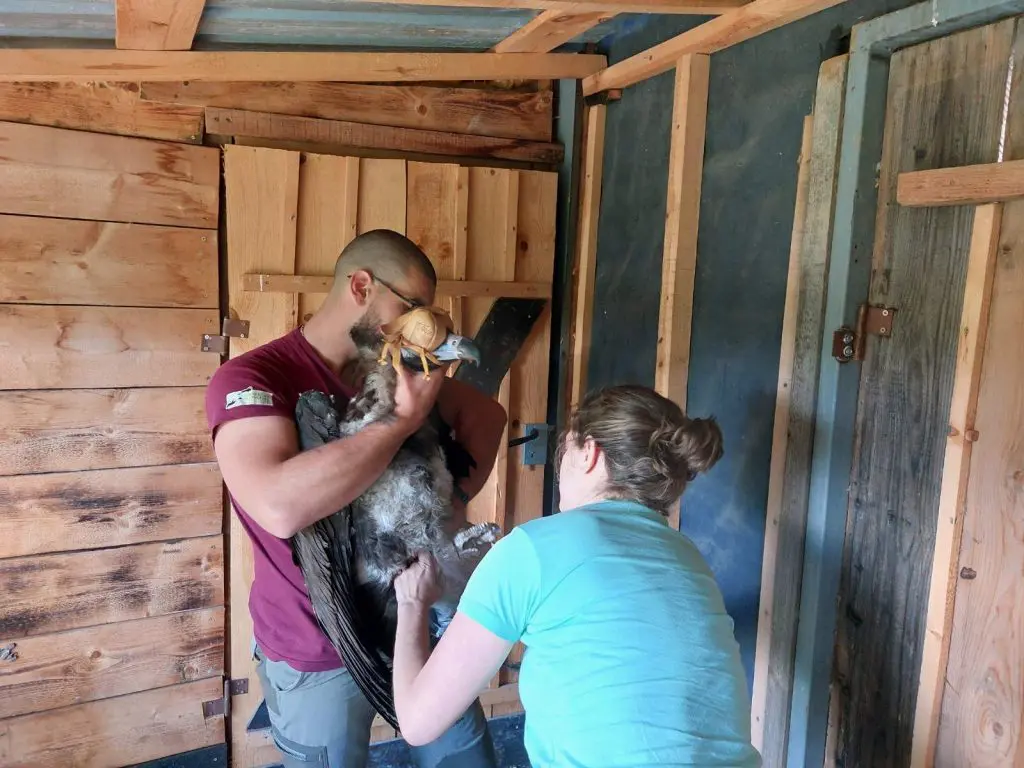Antibiotics have been beneficial for human and animal health. However, an excessive use in livestock and a deficient management of the carcasses that are deposited in supplementary feeding sites can lead to adverse effects in the scavengers that ingest them, as some antibiotics can have adverse impacts on vultures.
In his paper P. Gómez-Ramírez and his collaborators studied the incidence of antibiotics in a supplementary feeding site established to support an endangered population of Cinereous vultures (Aegypius monachus) in south-eastern Portugal. In this study they analysed 87 samples of liver, muscle and kidney from 7 goats and 25 sheep disposed in the supplementary feeding site, all of which, according to a questionnaire filled in by the respective livestock farmers, had not been treated with antibiotics.
However, they found residues (in very low concentrations) in 29% of the samples. Antibiotics were more frequent in goats (42.9%) than in sheep (24.2%), and oxytetracycline and trimethoprim were the most common (both 13.8%). Oxytetracycline, the most common antibiotic for livestock in Portugal, showed the highest concentration (1452.68 ng g−1). You can download the paper below.
While the doses of antibiotics found in this case can not cause death to the cinereous vultures, chronic exposure may have unknown health consequences. And if vultures are exposed to these low doses in supplementary feeding sites – where food is strictly screened and safety protocols are followed, then the probability of exposure elsewhere is probably even higher.
it is also interesting that screening questionnaires were not enough to prevent exposure to these antibiotics – either due to omissions, or inadequate forms. This lays the ground for the possibility that other vet drugs far more toxic to vultures do appear in supplementary feeding sites.
The issue of veterinary drugs is one that the VCF is paying attention. We are leading the calls to ban vet diclofenac in Spain and preventing its authorisation in Portugal – please sign this petition here if you have not done so: http://www.banvetdiclofenac.com/it/actua-2/
Diclofenac is an anti-inflammatory vet drug that is lethal to vultures. We also advocate more comprehensive toxicity tests for any new vet drugs being considered for approval, including on scavengers, while we welcome research that analyses the prevalence – and the relative toxicity of inflammatory drugs in the market.
Vultures do consume carcasses of domestic livestock, in a commensal and mutually beneficial system to all, but we need to make sure that vet drugs being used do not pose any significant threat to them.
Photo: Bruno Berthémy/VCF
![]() Antibiotics in carcasses in supplementary feeding of endangered vultures Gomez-Ramirez et al. 2018. Develop QuECH Adobe Acrobat Document 302.1 KB Download
Antibiotics in carcasses in supplementary feeding of endangered vultures Gomez-Ramirez et al. 2018. Develop QuECH Adobe Acrobat Document 302.1 KB Download



